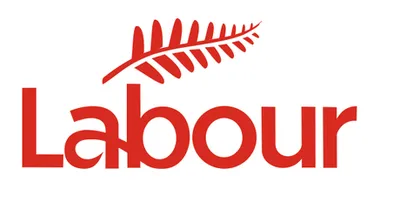Table of Contents
Dr Muriel Newman
Dr Muriel Newman established the New Zealand Centre for Political Research as a public policy think tank in 2005 after nine years as a Member of Parliament. A former Chamber of Commerce President, her background is in business and education.
New Zealand is officially in a recession. The Stats NZ figures released last week confirmed two quarters of negative growth – a fall of 0.1 per cent in the three months ended March, following a fall of 0.7 per cent in the December quarter.
This contraction is at odds with the Reserve Bank’s forecast of 0.3 per cent growth – leading to the question of whether their interest rate increase, which started in October 2021 and has led to the present 14-year high, has been too aggressive.
In 2017 Labour inherited a “rock star” economy. It deteriorated sharply in 2020 as Prime Minister Jacinda Ardern’s “world leading” harsh lockdowns and strict border closures took effect. The post-lockdown borrowing and spending that flooded the economy with easy money and created runaway inflation was unprecedented.
The latest May 2023 food price index shows significant annual increases: fruit and vegetables up 18.4 per cent; meat, poultry, and fish 11.7 per cent; and grocery items 12.7 per cent.
The Stats NZ data shows the biggest deterioration in output over the last 12 months was primary industries, which fell 3.7 per cent. This trend is consistent with a 2022 analysis by Infometrics, which found sheep, beef and dairy farming were all in decline.
An insight into what’s going on, can be seen in a Farmers Weekly article from March, which featured a former regional head of Federated Farmers, who had just sold his 440 hectare sheep and cattle farm. The overseas company that bought the farm had offered $2 million more for it to be turned into forestry than the closest offer that would have kept it as farmland.
It was clearly an agonising decision to sell a farm that had been in the family for generations, but the straw that broke the camel’s back was the increase in government regulation:
“An ongoing stream of legislative and regulation changes have added fuel to the family’s decision to sell out sooner than later. With impending national environmental standards coming out, the general cost of operating this type of property was not sustainable. This included having to fence about 12km of stream length on a highly floodable area where they had already lost 6km of fence in an earlier flood. The gully laden property includes plentiful native bush, something that he said did not seem to count for much under government emissions policy. ‘We were at the top end of gas emissions charges at about $40,000, which we could not recoup’.”
With growing debt and escalating expenses, employing staff was out of the question, so there was never any prospect of taking a break from the farm.
The forestry company has given the family an opportunity to start a new life free from what was fast becoming a millstone around their neck.
Thanks to Labour and the Greens there will be farmers all over New Zealand who, facing the massive regulatory cost burden that’s being forced onto them by this government will also be considering calling it quits.
And while the newly announced consultation on the use of forestry in the Emissions Trading Scheme, may have an impact on future farmland sales, any potential changes to the scheme will not be introduced until after the election and then only at the behest of the new government.
At the heart of the problems faced by farmers are the harsh methane penalties being planned by Labour and the Greens. According to the farm lobby group Groundswell, which has presented a 100,000-signature petition to Parliament to stop the introduction of farm-level emissions pricing, New Zealand farmers already have the lowest carbon footprint in the world: “Any reduction in New Zealand’s emissions would just be replaced by less-efficient nations like Brazil entering the market. We’re just going to send it offshore and achieve absolutely nothing.”
National has now said they will delay pricing methane until at least 2030. They say this is to give science and technology a chance to provide mitigation alternatives. But National needs to take a much longer and harder look at what is really going on.
Back in 2011, the British climate researcher Dr Wilson Flood wrote an article for the academic journal Energy & Environment to counter the growing hysteria over methane and set the record straight over the misconception that it’s a “dangerous greenhouse gas”.
He explained that not only is the quantity of methane in the air so small that even a doubling would not produce any appreciable warming, but that the rate of increase of the gas in the atmosphere is so slow that it would take 360 years to double!
Dr Flood also pointed out that since the warming ability of methane is only seven times that of carbon dioxide, livestock presents “no conceivable threat of any kind” – and cows and sheep “cannot contribute to global warming in any conceivable way”. He concluded that “research into altering the diet of farm animals to reduce dietary methane is hugely wasteful of resources”.
Here in New Zealand, an eye-watering amount of money has been poured into the black hole of methane research as attempts are made to change the outcome of livestock digestion, instead of accepting that such emissions are part of a long-established natural cycle that is harmless.
This week’s NZCPR guest commentator is Barry Brill, the President of the New Zealand Climate Science Coalition, and a former Government minister. His comprehensive review of methane points out that the United Nations Intergovernmental Panel on Climate Change now admits that “methane is seven times (not 28) more effective at being a greenhouse gas than carbon dioxide” – with their Sixth Assessment Report stating at page 1016 of Chapter 7, “…expressing methane emissions as CO2 equivalent of 28, overstates the effect on global surface temperature by a factor of 3-4”.
Barry then goes on to say, “No doubt this took the legs out from under Minister Shaw. He had been personally briefed on the flaws in 2019, but in a later answer to a Parliamentary Question said he was not a climate scientist himself and would be guided by the IPCC. That hasn’t happened yet.”
Barry Brill believes this revelation that the warming ability of methane is only seven times that of carbon dioxide, instead of 28, “changes everything. All the scenarios and budgets are now clearly wrong… If methane will cause only 25 per cent as much warming as previously expected, then we won’t need those huge reductions that appear in the now-outdated scenarios. With this new understanding, the 1.5°C aspirational goal comes back within our collective grasp – and with much less pain and anxiety than used to be expected. It’s wonderful news, and a win-win all around. Let’s celebrate!”
However, far from celebrating, the Government appears to have its head in the sand as it continues to use the discredited data to impose penalties on methane producers are four times higher than they should be.
The waste sector, which entered the Emissions Trading Scheme in 2013, is already a victim for what looks likely to become an over-charging scandal. The Ministry for the Environment’s website explains that in 2019, “94 per cent of waste emissions were biogenic methane – largely generated by the decomposition of organic waste. While waste contributes a small percentage of our total emissions, biogenic methane has a warming effect 28 times greater than carbon dioxide.” It notes: “This statement is based on information in the Fifth Assessment Report of the United Nations Intergovernmental Panel on Climate Change, completed in 2014.”
The mainstream media should be challenging this: the Government should be held to account for knowingly overpricing methane.
But the problem New Zealand faces is that, for the last five years or so, much of our mainstream media has adopted a pro-climate emergency advocacy stance – as the following statement indicates: “Stuff accepts the overwhelming scientific consensus that climate change is real and caused by human activity. We welcome robust debate about the appropriate response to climate change, but do not intend to provide a venue for denialism or hoax advocacy.”
If the mainstream media had been acting as our democracy’s Fourth Estate, instead of promoting climate alarmism, it’s likely that New Zealand would not be in the position where our farmers are being driven off their land and Kiwis are paying more for food than they should.
Furthermore, the public would be far more alarmed about the extortionate costs that Labour and the Greens are attempting to force onto the country through their Zero Carbon agenda.
According to the Climate Economic and Fiscal Assessment 2023 report, released by Treasury in April, the cost of meeting Labour’s climate commitments by 2030 are a “significant fiscal risk”. With offshore carbon mitigation likely to be needed to meet up to 70 per cent of our climate targets, the cost could be in the region of $25 billion – or “28 per cent of the new operating expenditure that will be made available through Budgets 2024 to 2030.”
Thanks to the extremism of former Prime Minister Jacinda Ardern and the Green Party’s Climate Minister James Shaw, New Zealand is the only country in the world crazy enough to attempt to regulate livestock emissions.
As New Zealand’s climate research Professor Dave Frame, and senior climate diplomat Dr Adrian Macey have explained, “Delivering good outcomes in climate policy is not just about giving negotiators and ministers free reign to make ever-grander promises. It is at least as much about ensuring policy can deliver on the promises already made.”
In a series of five articles for Business Desk, published in 2022, they critically examine the state of climate policy in New Zealand, pointing out that when the Kyoto Protocol was being developed in the nineties, exemptions for methane were sought: “A few countries, including NZ, argued special circumstances to get a lesser target. Our reasons were twofold. First, our hydro and geothermal electricity made up so much of our total that we didn’t have the potential to make large reductions in CO2. Other industrialised countries could retire their old coal-fired power stations. Second, half our emissions were from agriculture, and there were simply no technologies to reduce methane in particular. No other developed country had anything like this proportion of agriculture emissions in their total.”
A Cabinet Minute from the Bolger Government in 1992 confirms a similar approach – standing aside from methane targets until a technical fix was available: “In the absence of significant scientific and technological advances we do not expect to be able to make significant progress on methane… As the convention specifically recognises the need for technology to be available to enable countries to deal with emissions and also recognises the differences in economic circumstances, we believe New Zealand’s inability to reduce emissions in these areas can be adequately justified in our reporting.”
A technical fix is still not available. Yet in spite of the Paris Agreement allowing the specific circumstances of countries to be taken into account, instead of emulating the Bolger Government and taking methane out of the equation, Labour and the Greens have saddled New Zealand with unachievable targets at unaffordable costs.
Not only is Labour using the UN’s discredited data to over-charge for methane, Treasury’s Climate report includes references to the IPCC’s now abandoned RCP8.5 scenario, which predicts sea-levels will rise by over a metre. This measure has been discredited because it was based on the impossible situation of the whole world using only coal for fuel!
The fact that Labour is still using such extremist sea level predictions in their official guidance – including to Local Authorities for developing their long-term plans – is yet another scandal. In that case, it is ratepayers who will bear the cost.
What is now needed are wise heads to undertake a comprehensive review of Government climate policy – including the Emissions Trading Scheme, which, thanks to ongoing political meddling, is now also on the verge of collapse.









